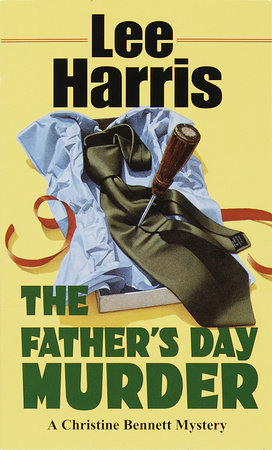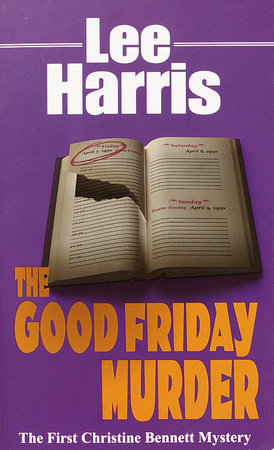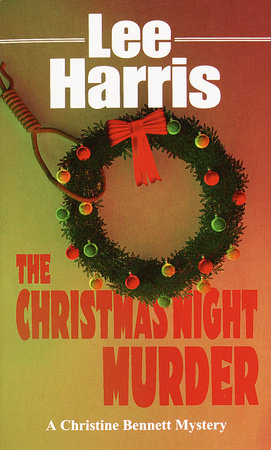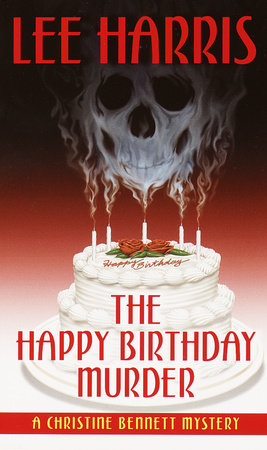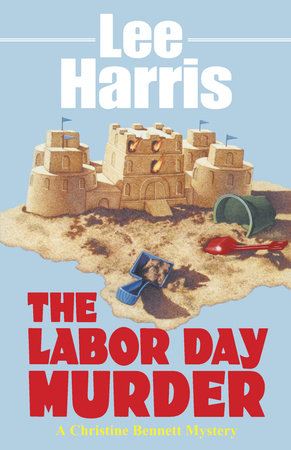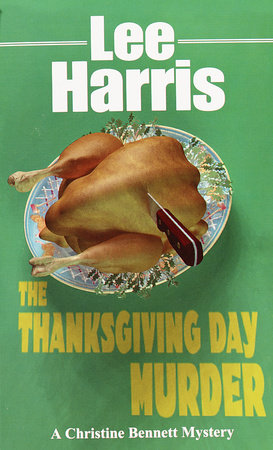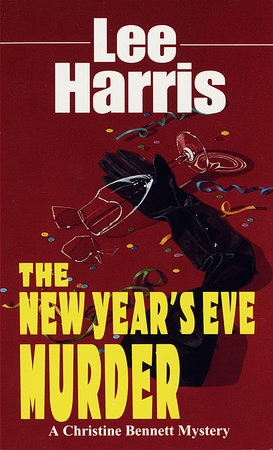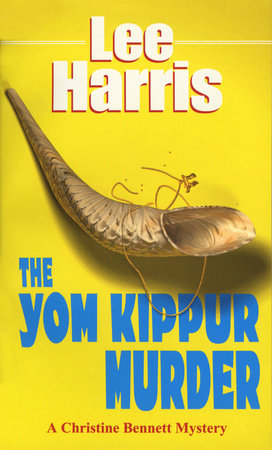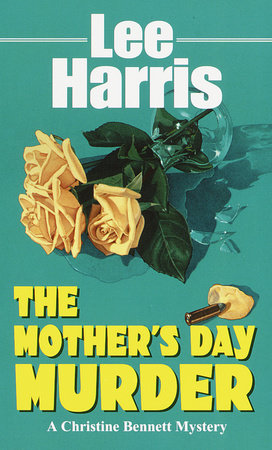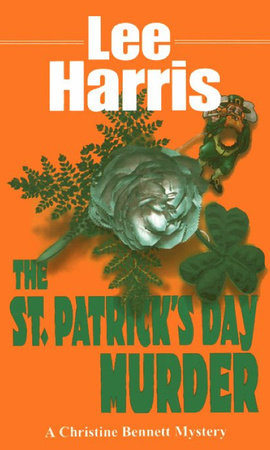Excerpt
The Father's Day Murder
1
The call came at nine in the morning as though the caller had been sitting by the phone waiting for a polite time to call. After I answered, a girlish voice asked tentatively, “Ms. Bennett?”
“Yes.”
“This is Janet Stern?” She said it like a question I might be able to give her an answer to.
“Janet, yes. How are you?” She had been a student in my poetry class and I wondered how she had gotten my phone number. Jack is very particular about not giving it out and I use my maiden name to teach.
“Uh fine. It’s just—I have a problem.”
“Grades are in, Janet. And I think you did very well in the course.”
“It’s not that. It has nothing to do with school. I’m sorry. I’m a little nervous. Uh, I’m calling about something else. The student paper did a write-up on you last fall?” Again she said it like a question.
“Yes, it did.” It had been a nice article, well written, complete with a picture. It was a profile of me and included a description of a murder I had had a hand in solving last summer on Fire Island.
“We have a terrible problem in my family. It’s my grandfather. Somebody he knows was murdered and he’s—well, the police used the word suspect. Could we talk about it?”
More things rushed through my mind than I could count or consider. I should say no because Jack would be coming home to dinner every night and I wanted his life as comfortable as possible. I should say no because I had gardening to do and books to read, because I had put in two semesters’ worth of work and I wanted a little time to indulge my whims. But murder is serious, and this girl was nervous and scared and it wouldn’t hurt to talk to her and find out what was going on. “I’d be glad to talk about it with you,” I said.
I could hear her exhale. “Thank you. Thanks a lot. Could we meet for lunch?”
“Today?”
“Today would be great.”
“I have to make arrangements for my son, Janet. Can I call you back?”
“Sure.” She gave me a number, and I called my mother’s friend Elsie Rivers, my number one sitter, and asked if she was free. Elsie always makes me feel as though I’m doing her a big favor by leaving Eddie with her. I hadn’t left him for some time so I didn’t feel too guilty about asking, and she was thrilled. She had some small errand that could easily wait and she knew Eddie would love to play in her garden. All in all, I was very grateful.
I called Janet back, and she gave me the name of a restaurant I had heard of but had never visited in one of the towns along the Sound, the kind of restaurant that would require my putting on a dress and looking like a lady. I didn’t mind. My usual life was so casual, it was a treat to dress up once in a while.
Eddie was happy enough to be going to Elsie’s. Her lunches were far more appealing than anything I put together. My lunches emphasized tuna fish, but Elsie is inventive and always manages to have cookies for good little boys. He took along some toys, and I managed to get him in and out of the car without ripping my stockings. Elsie was impressed with the restaurant I was being taken to and assured me I was dressed appropriately.
I kissed them both and left.
The restaurant was on a busy street with elegant shops up and down the block, a movie theater featuring four current films, and people window-shopping as well as carrying the kind of small, pretty shopping bags that indicated expensive purchases. I parked around the corner at a meter I was lucky to find and put in enough coins for two hours. Then, since I was a few minutes early, I did my own window-shopping, looking at handbags too expensive even to consider and handmade jewelry that spoke of a designer with real talent.
The restaurant, Maurice’s, had a heavy oak door with a small, cloudy window at about eye level. I pulled it open and went inside, a cool darkness greeting me. Tables were set with white linen and candles burned on the occupied ones.
“Yes, madam.”
I am not often addressed with such formality and I attempted to take it in stride. Where I live, I’m Chris unless I see an old friend and then I’m more likely to be Kix, a childhood name that has stuck. “I’m meeting Miss Stern,” I said.
“Oh yes. They’re here. Come this way, please.”
The they surprised me. Janet hadn’t said anything about anyone else joining us, but as we approached the table, I could see it was her mother who was with her. The two faces were as alike as such a relationship could produce, but the mother’s face was clouded with worry.
She looked up as she saw me and stood to greet me. “Ms. Bennett, thank you so much for coming. I’m Lila Stern. Please sit down and make yourself comfortable.”
“Thank you.” The place reserved for me was to her left with Janet sitting directly opposite me which I liked. I would be able to look at both of them easily. “Please call me Chris. I’ve just been called madam and I’m a little startled by it.”
Lila Stern gave me a quick smile that faded immediately. “I’m Lila. I somehow thought you would be older.”
“I’m thirty-four,” I said.
“Well, I’m past forty so that sounds pretty young to me. Why don’t you have a look at the menu before we start to talk? They do a wonderful cioppino here.”
My taste in food is rather simple, and I looked through the menu a couple of times before deciding on a pasta dish with all sorts of good things added. Janet chose the same thing but Lila ordered a plain fish dish and a green salad. No wonder she was pencil slim.
She then asked for the wine list, and I told her I would not be drinking. I like wine although I’m not much of a connoisseur, but I don’t hold it well and I wanted to fall asleep neither while we were discussing something very important to these two people nor while I was at the wheel of my car driving home. She ordered a glass of wine for herself and then turned to me.
“Janet told you what happened?”
“Not really. Why don’t you start from the beginning?”
“Well.” She smiled, more to herself than to me. “The beginning goes way back, long before I was born. My grandparents were immigrants. They came to this country separately and met and married in New York. They started with nothing, as you can imagine, but they did well enough by working hard. After my uncle was born, they moved into an apartment in the Bronx. It was a residential neighborhood near Morris Avenue.” She paused as though she expected me to acknowledge the name.
“I don’t know much about the Bronx,” I said.
“Well, it was a place where people grew up in the thirties and forties. There were parks and schools and stores and lots of apartment houses. It was a safe place to live, with children playing in the street and women schmoozing. It was a few blocks from the Grand Concourse—”
“I know the Concourse,” I said, finally recognizing a name.
“Yes, a magnificent street, a boulevard, almost like Paris if you think about it; the subway runs just underneath it. It was a wonderful place to bring up children.”
She paused, as though to consider when to begin the substance of her story. “That’s where my father, Morton Horowitz, grew up. He went to school there, and he became friends with a group of other little boys who were just like him in many ways, children of immigrants or even immigrants themselves, with families that placed tremendous importance on education and hard work. Some of them became friends when they were in kindergarten, others when they were a little older. But altogether there were nine of them by the time they were eleven years old and thinking about high school. They called themselves the Morris Avenue Boys.” She smiled wistfully, as though she were talking about her own friends and their childhood. I could imagine that her father had regaled her with tales of his youth, his friends, their practical jokes.
“Are they still friends?” I asked.
“Most of them, yes. Not all. And those that are are as close as brothers. They’ve scattered, of course. Nobody lives in the Bronx any more, and a couple of them don’t even live in the East. But they have reunions every so many years, the ones who keep in touch. The last reunion was last Sunday, Father’s Day.”
“Did they pick that day for any special reason?”
“It was spring and it was a good time to travel. I think they felt it was a good day to be in the New York area. Many of their children and grandchildren live around here, and they could spend the day with their families and then have their celebration at night.”
“I gather from what Janet told me that something terrible happened that night.”
“It did.”
Our first courses were just arriving, and we said nothing while the waiter placed them artfully in front of us. Before beginning to eat her salad, Lila opened her bag and pulled out a small black-and-white snapshot. She put it on the table between us, and I picked it up and looked at it.
Two rows of young boys grinned impishly at me, boys with pudgy cheeks and unruly hair, sparkling eyes and smudged shirts. There were five in the back row, four in the front, and the background appeared to be brick with a window frame at the left end, probably an apartment house they lived in or near. It was hard not to smile back at them.


